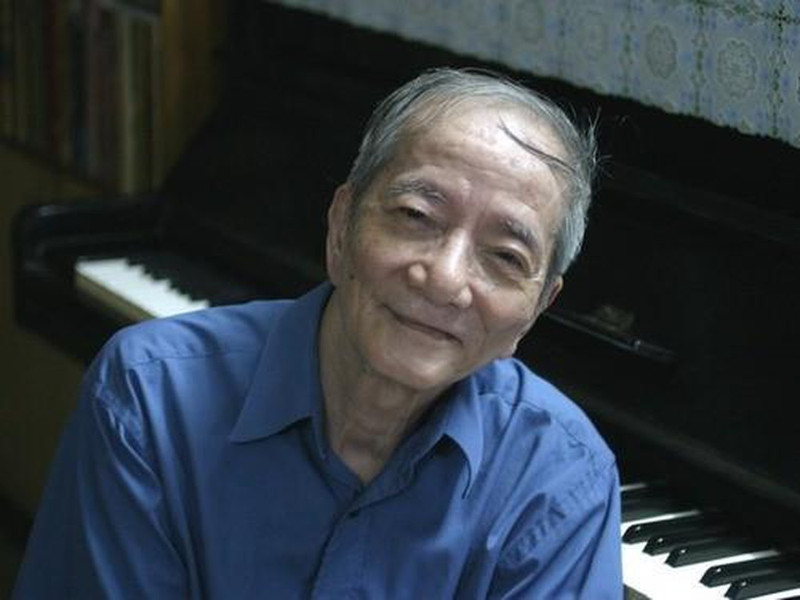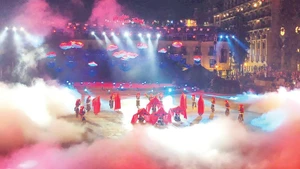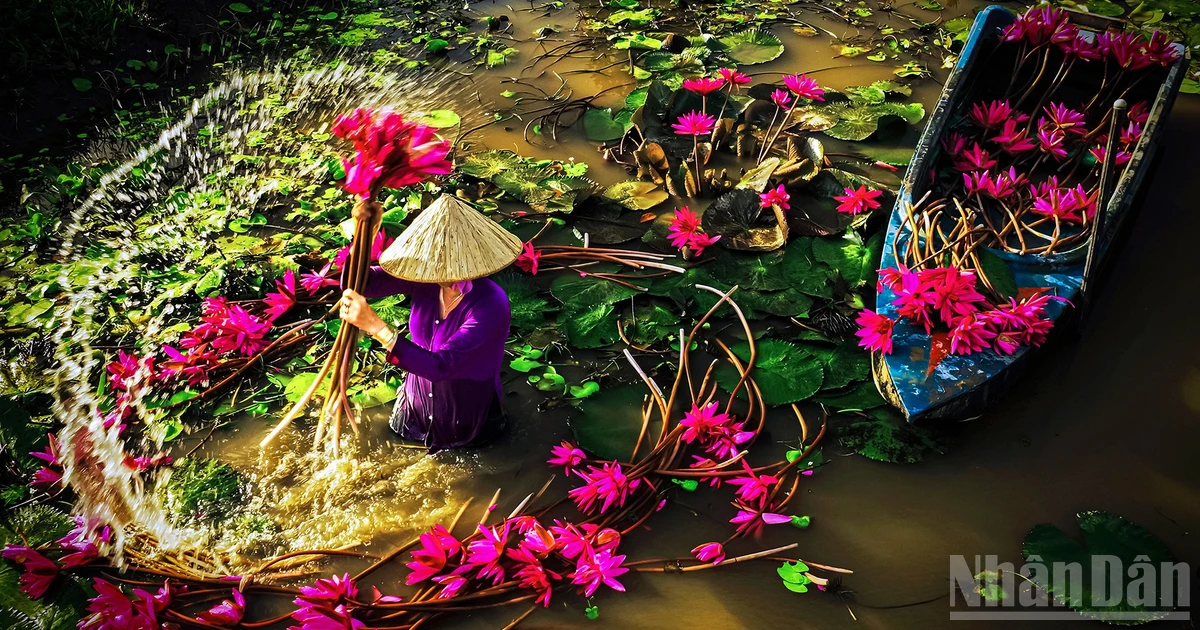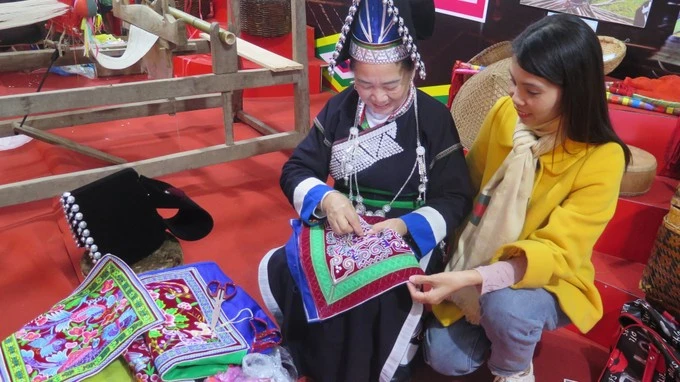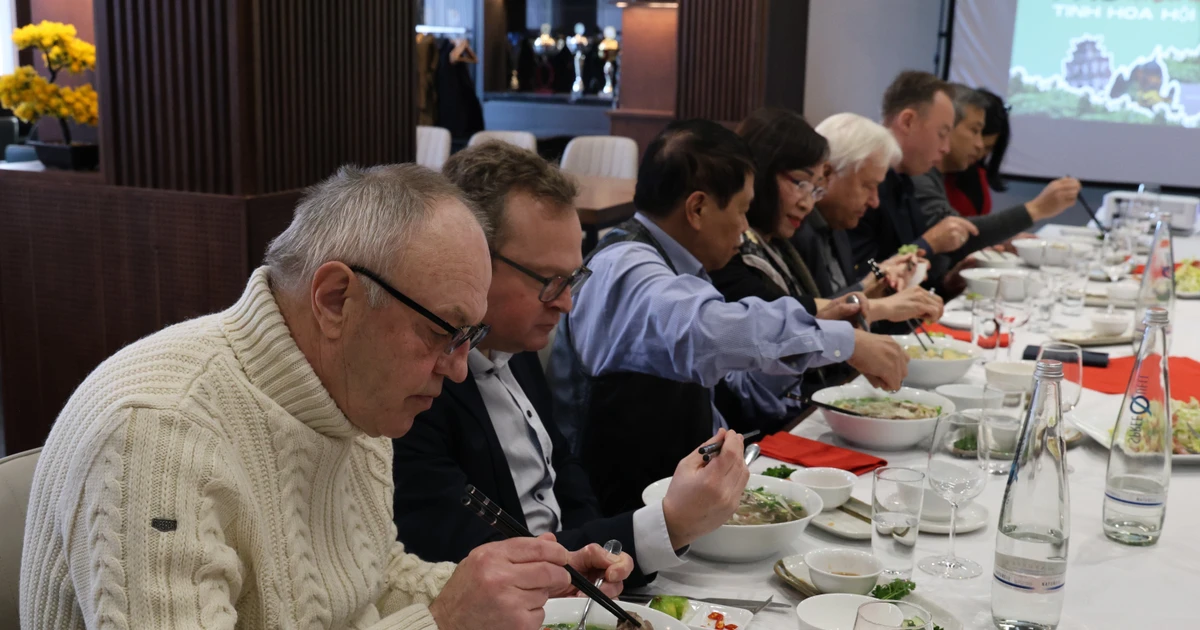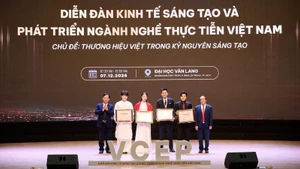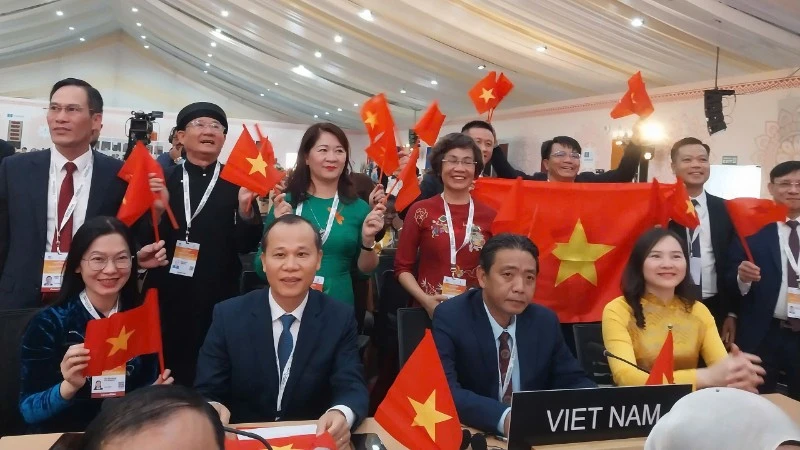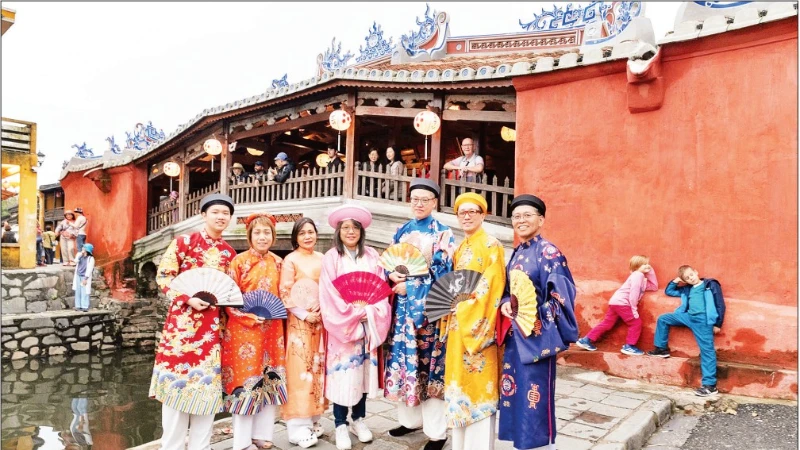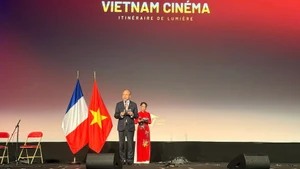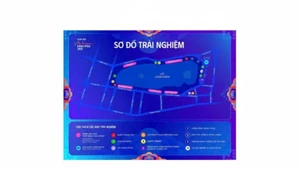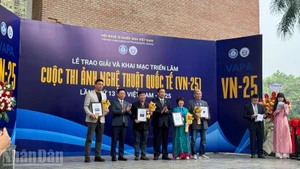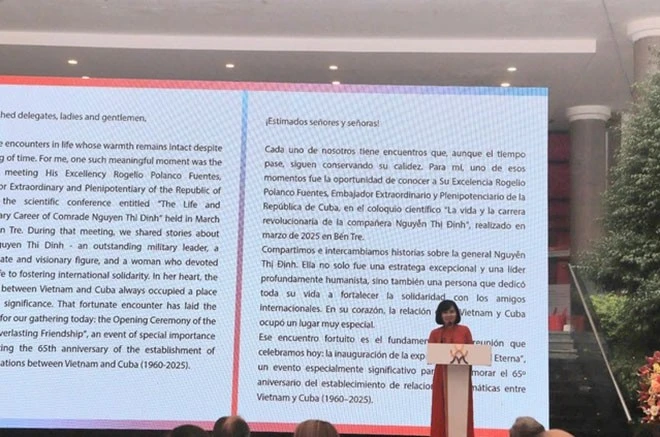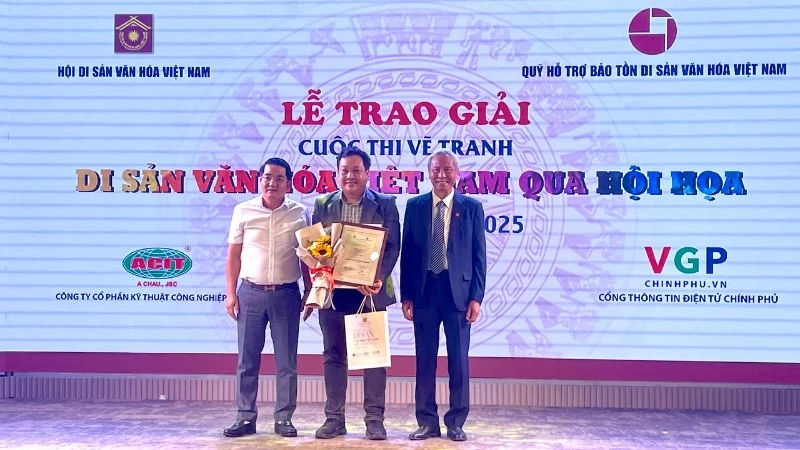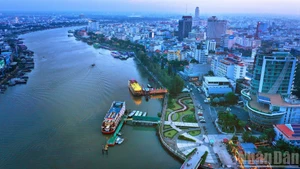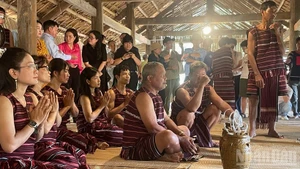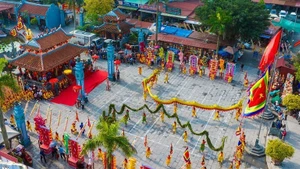On this occasion, Nhan Dan (People) Newspaper introduces readers to an article about the talented Vietnamese musician, a resident communist, and an outstanding diplomat, by Merle Ratner, a member of the Communist Party of the United States, who has a developed a strong passion for Vietnam and its people and has a time-honoured comradeship with composer Do Xuan Oanh.
Below is the extracted text of the article:
I first met Do Xuan Oanh in my first visit to Vietnam from the end of 1985 to early 1986. I had been active in the US movement against the US war against Vietnam from 1968 on and then in the movement to end the US embargo against Vietnam and to continue building people to people solidarity with Vietnam since liberation in 1975.
Visiting Vietnam for the first time was a very moving and emotional experience for me! To see with my own eyes the victory of the Vietnamese people against US imperialism (based on the previous victories against French colonialism) was a testament to the bravery, creativity, dedication and perseverance of the Vietnamese revolutionaries and their Communist Party, National Liberation Front and their mass organisations like the Women’s Union, Youth Union, Farmers Union, etc.
On that very first visit, we (my partner, Ngo Thanh Nhan and I) were taken to the Hoi Viet My- the Vietnam-USA Society where we met Do Xuan Oanh, the head of the group. Xuan Oanh met us with such warmth and enthusiasm that we immediately felt at home! He briefed us on the work of Hoi Viet My as well as telling us about his work during the US war to build people to people solidarity between the Vietnamese and US peoples.
Xuan Oanh also explained that Hoi Viet My was founded as the Vietnam American Friendship Association on October 17, 1945, just 45 days after President Ho Chi Minh declared the Proclamation of Independence, which established the Democratic Republic of Vietnam on September 2, 1945.
During our visit, we wondered how a people who faced so many years of sacrifices in fighting for independence against French and then US imperialism could prioritise running a friendship organization with the US people. Xuan Oanh pointed out that the Association which is now Hoi Viet My was founded under the instructions of President Ho Chi Minh who always explained that people to people relations were the foundation of international affairs and that Vietnam had always made the distinction between the imperialist government of the US and the US people.
Through Xuan Oanh’s explanation of the history of Hoi Viet My, I began to grasp Xuan Oanh’s commitment to, experience with and mastery of internationalism and people to people diplomacy!
At that time, Vietnam was still facing the more immediate devastation of the war upon its people and land and the country was quite poor. The Association had offices in an old building in Hanoi but very little money for staff, travel and supplies. Yet Xuan Oanh had built an organisation with a small but dedicated staff of people. Together they were able to accomplish a huge amount of people to people work even as their own living conditions were difficult.
During that visit and thereafter, Do Xuan Oanh taught me and our movement about the dialectical relationship between militantly fighting for independence and building international solidarity and support from people in the US and other countries. He also showed through his practice how much can be done by even a small group of very dedicated people with few resources to build people to people solidarity. It was clear by watching Xuan Oanh interact with me and others that his success in building these ties was grounded in a profound internationalism and love for the masses!
Lessons in fighting for independence and people’s diplomacy
Xuan Oanh participated in the Vietnamese revolution in many ways. Coming from a poor family, when he was young, he worked in the coal mines. He was involved in the struggle against colonialism and imperialism as a musician and songwriter, writer, translator, solidarity and peace activist and a people’s diplomat.
Xuan Oanh fought with the Viet Minh, participating in the August Revolution and deploying to Viet Bac. He joined the Communist Party of Vietnam.
Interwoven throughout his life was Xuan Oanh’s work as a people’s diplomat. He had many leading roles including as head of Hoi Viet My, the Vietnam Peace Committee and others. There were a number of factors that made Xuan Oanh exceptional in this work.
First, he was unerringly dedicated to the Vietnamese people, their revolution and the transition to socialism. He understood, along with President Ho Chi Minh, that building international solidarity and friendship was an important front in the struggle for independence and a new socialist society and not something to be seen as an “add on.”
Second, he was uncorruptible and wouldn’t countenance corruption and opportunism in others.
Third, he really loved getting to know people and also knew how to relate to international friends. Unlike some others, Xuan Oanh never read from a script or quoted slogans (unless they were pertinent) when meeting with us. He always explained things in clear and understandable terms even when he was talking about complex theories or concepts. Xuan Oanh never relied on facile or simplistic answers to tough questions. Rather he patiently took on the most critical questions and responded to them with truth and sometimes humour.
Fourth, Xuan Oanh hated bureaucracy wouldn’t tolerate it in his organizations. He worked hard and demanded hard work from those he worked with while at the same time being supportive and solicitous about his co-workers’ family needs and health. When there was work that needed doing, he was not shy about doing it and he promoted a culture of getting things done without red tape. This is why Hoi Viet My was able to do so much with so little when I worked with them.
Fifth, Xuan Oanh was not afraid of practicing criticism/self-criticism with colleagues and friends. He did it in a considerate and friendly way in order to improve the work rather than as a show of authority. This built confidence among co-workers and led to a high degree of solidarity and esprit de corps.
Finally, Xuan Oanh was tremendously knowledgeable about not only Vietnam but the US and the world. He understood both the politics and the culture of the US including the music. He also understood US colloquial expressions, humour and the straightforward (and sometimes blunt) way that Americans often expressed themselves. Because of this he was able to evaluate international visitors and determine how to best communicate with them and what they needed to know about Vietnam. Most international guests gravitated to Xuan Oanh, recognizing him as a friendly, honest and open-minded person.
Xuan Oanh: A people’s cultural worker
Do Xuan Oanh’s revolutionary fervour was manifested in many ways, but it had a particular expression in his writing a song, called ‘August 19’, which captured the fighting spirit of the Vietnamese people and became an anthem of the August Revolution. Xuan Oanh said that he nurtured the idea of writing a revolutionary song on the occasion of the uprising day.
“The song came to my mind as I was marching with other revolutionaries. Everyone repeated the song’s lyrics and when we reached the Opera House [in Hanoi] I finished the song. It had a marching melody because we sang it while we were marching.”
So his famous song came organically out of his participation in the mass struggle and, in turn, expressed the feelings of the people and strengthened the struggle.
Xuan Oanh is quoted as saying that he did not expect his song to become so popular so quickly, but added that it evoked the feelings of people who achieved independence and freedom for the first time after nearly a century under colonial rule.
Do Xuan Oanh thus added people’s cultural worker and musician to his long list of contributions to the Vietnamese revolution. As with his other work, Xuan Oanh was modest about his role as a musician and cultural worker. Despite writing many songs, both political and personal (many about love) and winning many awards as a people’s artist, Xuan Oanh cared little about fame or fortune. I remember I was at his house in Hanoi congratulating him on winning a very prestigious award for his music. He smiled, didn’t want to talk about the award and said he was happy that he could use the stipend that came with the honour to buy his granddaughter a piano.
Do Xuan Oanh was someone who used his many, many talents not to aggrandise himself or provide a spectacle for those with money, but to contribute to the struggle for independence and socialism and to provide joy to the masses. This is the essence of a people’s cultural worker!
Do Xuan Oanh shared many songs with me, but he was a bit shy about singing them for me himself. In later years when I would visit him at home, I would always ask him to sing one of his songs for me and he would always say he would do it “later.”
Finally, at a time when he invited me for a dinner that he himself cooked, he surprised me by singing one of his songs for me! I don’t remember the name or the lyrics, but I do remember it was a song full of emotion about love and hopes for the future. The meal he prepared was also wonderful, but what I remember is the homemade ice cream he made for me and the effort he put into making us a meal we could share together.
Xuan Oanh as a friend
Xuan Oanh’s house in the middle of Hanoi was small and modest and it was an oasis of music, conversation and often good rice wine. In the earlier days before people had phones at home, it was the practice to show up unannounced and knock on the door to visit. I remember on at least one of those occasions Xuan Oanh looked surprised to see me, but he always invited me in for a talk and something to drink.
On several occasions when I faced difficulties in my activities, I came to him for solace. He always listened carefully, gave me advice when he could, often of a philosophical nature. I always left feeling that he had confidence in my ability to figure things out, even when that involved me needing to realize I had made a mistake.
Do Xuan Oanh’s personality and way of thinking was a factor in his accomplishments and also a gift to his friends. Xuan Oanh was unfailingly kind and generous and at the same time had a critical mind and an ability to struggle over differences and criticisms. He engaged in serious study about many issues including the US and had a broad and deep understanding of the people, culture, politics, class and social sectors and government of the US. So when I talked with him, he knew what he was talking about and could engage in dialogue and struggle to develop a unity and to clarify and, if possible, resolve differences.
Xuan Oanh was also a very modest person and was happy to hear criticisms and to give them in a very gentle and productive manner. I remember that when I sometimes expressed my frustration about the US people’s political limitations, he asked me to work hard to organize them and be hopeful and patient about their ability to change and develop, saying that it was imperative to love one’s own working class if one is to make revolution.
Do Xuan Oanh was also wry, funny and sometimes sarcastic but never in a mean way. He understood the humour in human foibles and could use the power of satire to lampoon things that were wrong in a way that was both instructive and quite funny.
Xuan Oanh was sometime subdued and sometimes an exuberant person. When he was deep in thought about something he was working on or about a problem that was bothering him, he was very quiet. At other times, when he was relaxed with friends, he radiated joy as he told stories and shared his ideas.
I would be remiss if I didn’t mention Do Xuan Oanh’s role as a family man! While I didn’t know his wife well, I met her at their home on occasion and could see the strong bond between them.
I wasn’t able to see Xuan Oanh in the period before his death, both because I wasn’t in Vietnam during much of his illness and because when I was able to come, he was too sick to see friends.
I miss being able to talk with Xuan Oanh and sit with him over a drink or some music and I will always remember his kindness, brilliance, revolutionary spirit, solidarity and his friendship. I will always try to emulate him and practice what he taught me about being a comrade, a communist, an internationalist and a good person!
I also have two corporeal gifts from Xuan Oanh. He gave me two of his paintings that now adorn our walls – one of a woman with a guitar, which hangs above our bed and one with a woman with a dan ty ba which hangs in the hallway. So, every day as I walk through my house I think about the joy that Xuan Oanh brought to me and so many others.
We have a saying in the US which we’ve taken from the Cuban revolution. When a dear and precious comrade dies, we say their name and then say, ¡presente! So I will end this writing by saying, Do Xuan Oanh, ¡presente!
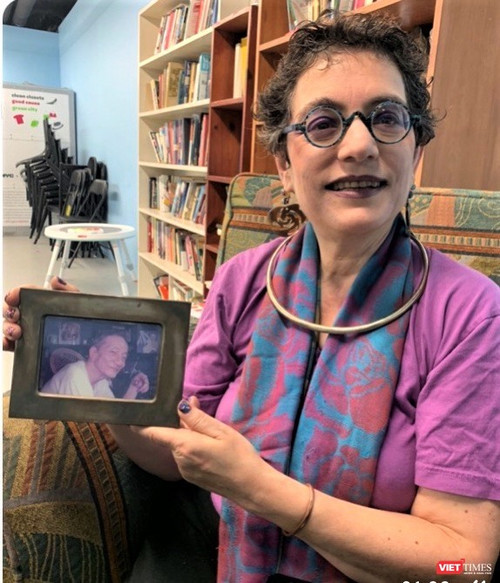 |
Born in 1957, Merle Ratner is the founding Co-Coordinator of the Vietnam Agent Orange Relief & Responsibility Campaign (VAORRC) in the United States. She is also a member of the Board of Directors of the Brecht Forum/New York Marxist School.
All her life, she has been active in the anti-war, anti-imperialist and anti-racist movements and advocates for peace in the world.
Together with Honorable Bishop Thomas Gumbleton, the co-presidents of VAORRC in the US, Merle Ratner was awarded the 'For Vietnamese AO Victims' insignia in Hanoi in 2013.
